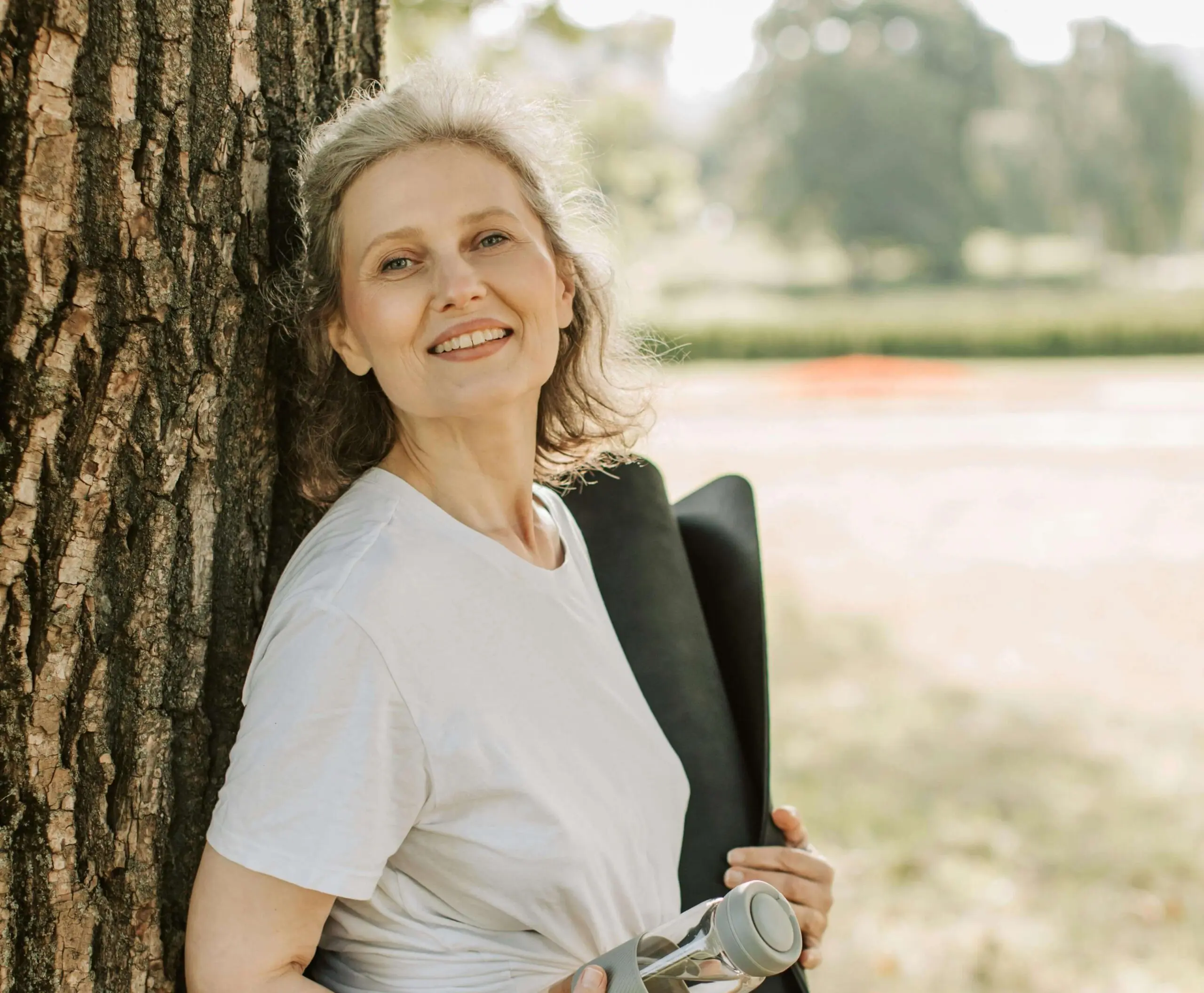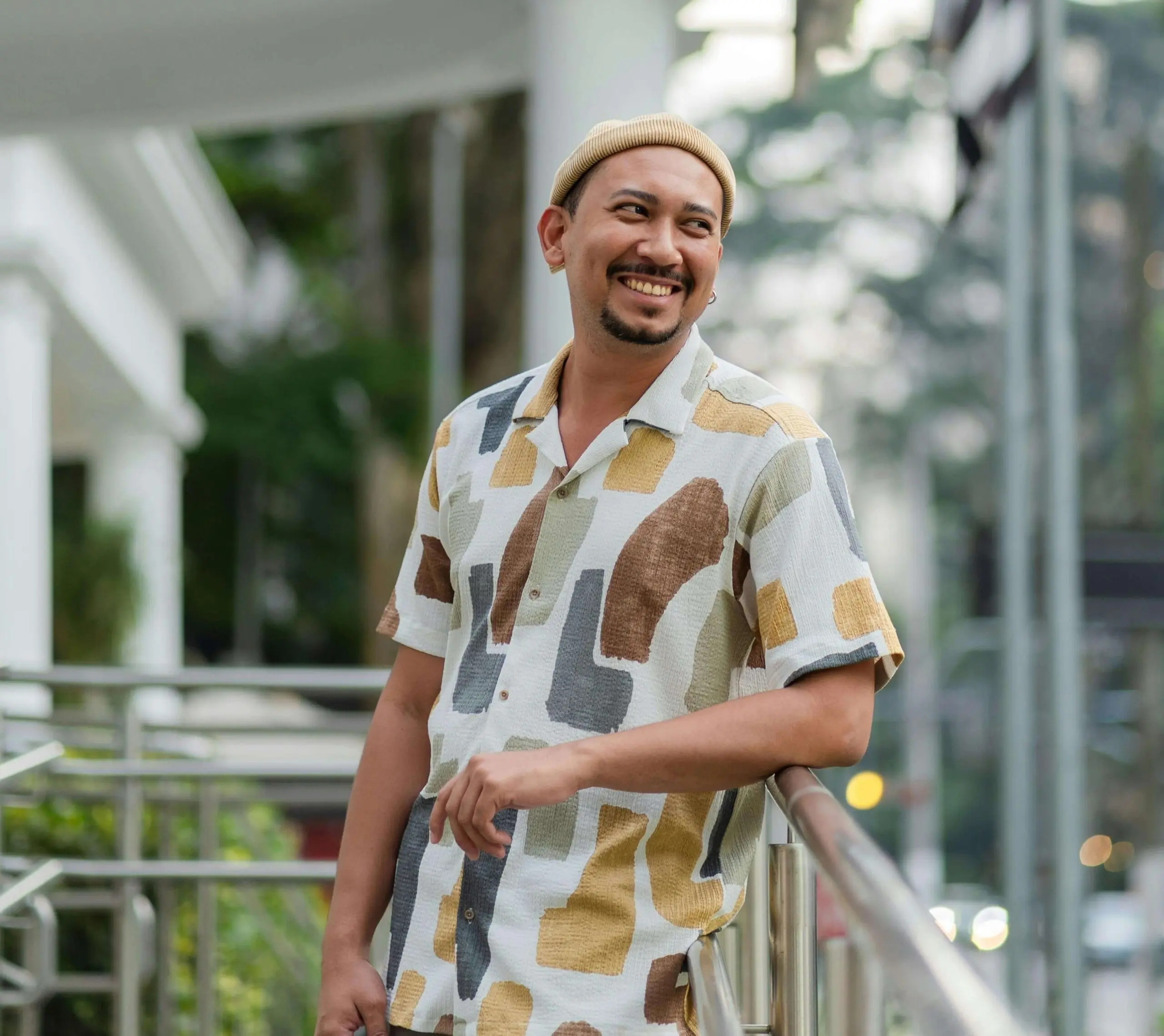Life in Houston can be fast-paced and overwhelming. Life in Houston is busy and can feel overwhelming. There’s always traffic and noise. The culture often values productivity over rest. The city’s energy is exciting, but constant noise from honking cars, construction, and crowds can drain you.
The Impact of Noise and a Fast-Paced Lifestyle on Mental and Physical Health
Chronic Stress & Overstimultion
Chronic Stress & Overstimulation: Constant noise keeps your brain on high alert. This raises cortisol levels, the stress hormone. It can cause mental fatigue and make it hard to concentrate. The body sees noise as a threat, keeping the nervous system in fight-or-flight mode for too long.
Emotional Dysregulation & Irritability
Emotional Dysregulation & Irritability: Too much stimulation can stress the nervous system. This makes it harder to manage emotions. Too much sensory input, like noise, bright lights, or crowds, can stress the brain. When this happens, it may lead to heightened stress levels. This can cause more irritability and anxiety. It can also lower your ability to handle frustration or small problems. Even a stop at a traffic light becomes an irritant!
Sensitive people—like those with sensory processing issues, ADHD, autism, or anxiety—often face challenges with overstimulation. Their nervous systems can become overloaded in a short amount of time. This can lead to mood swings, difficulty concentrating, and physical problems like headaches or fatigue.
When overstimulation affects the brain, it struggles with higher-order thinking. This makes it tough to manage emotions well. Small frustrations can feel overwhelming. We may react with less consideration than we should. Managing stimulation is key for emotional balance and well-being. You can do this with breaks, mindfulness, quiet spaces, or sensory regulation strategies.
Background Noise
Background noise from sirens and traffic can disrupt sleep, even if you don’t notice it. Poor sleep affects mood, memory, and the body’s ability to recover from stress. Poor sleep affects mental and physical health. It impacts mood, thinking, and how well the body recovers from stress. Lack of sleep or poor-quality sleep makes it hard for the brain to manage emotions. This can make you more irritable. It can also raise stress and increase the risk of anxiety and depression. The prefrontal cortex helps with decision-making and controlling impulses. It becomes less efficient, so regulating emotions gets harder.
Additionally, sleep is essential for memory consolidation. In deep sleep, the brain sorts through the day’s information. This helps keep important details and blend in new learning. Disrupted sleep hurts memory and thinking. This leads to trouble concentrating, slower reactions, and more forgetfulness.
Sleep is crucial for the body’s ability to recover from stress. During rest, the body repairs tissues, regulates immune function, and restores energy levels. Chronic sleep deprivation raises cortisol levels, which are the stress hormones. It also weakens the immune system and causes inflammation. This increases the likelihood of people becoming ill and experiencing physical fatigue. Poor sleep can raise the risk of chronic issues over time. These include heart disease, high blood pressure, and metabolic disorders.
Burnout Risk
Higher Burnout Risk: Being busy—like working long hours, spending time with friends, or scrolling your phone—leaves little room for rest or self-care. When you don’t take breaks to recharge, your mind and body start to wear down, making it harder to manage stress. Over time, this can lead to burnout, a state of deep exhaustion that affects both your emotions and your ability to function.
Burnout can result in mental fatigue, being emotional overwhelmed, and physical exhaustion. You might struggle to focus, feel less motivated, or even feel numb. It’s as if you don’t care about things like you once did. Small tasks can feel like too much, and even things you used to enjoy may no longer make you happy.
Burnout can worsen without enough rest and balance. This affects your relationships, work, and well-being. Taking time for yourself is important. Relax, enjoy hobbies, and set boundaries with work and social media. Doing this helps prevent burnout. It also keeps your mind and body healthy.

How Peaceful Environments Help Reset the Nervous System
Spending time in quiet, natural, or reflective spaces helps the nervous system shift from high alert to rest and recovery. Research shows that time in green spaces, calming environments, and mindful solitude can:
- Lower cortisol levels and reduce overall stress
- Improve mood and emotional regulation
- Enhance focus and cognitive function
- Supports deeper sleep and relaxation
- Increase overall sense of well-being
By seeking out peaceful places, you give your mind and body a chance to reset, breathe, and process emotions effectively.
That’s why we’ve created this list of hidden, calming spots in Houston where you can slow down, practice mindfulness, and reconnect with yourself. Whether you’re processing deep emotions after therapy or simply seeking a quiet space to reset, the right environment can support mindfulness, emotional experiencing, and psychological flexibility.
Drawing from DBT (Dialectical Behavior Therapy), RO DBT (Radically Open DBT), ACT (Acceptance and Commitment Therapy), and Somatic Experiencing, these peaceful, lesser-known places in Houston provide opportunities to practice getting in touch with what your body is feeling, distress tolerance, radical openness, and values-based living.
Houston Arboretum & Nature Center
4501 Woodway Dr, Houston, TX 77024
Nestled in Memorial Park, the Houston Arboretum & Nature Center offers peaceful trails, quiet ponds, and abundant wildlife. It’s an ideal place to engage your senses, regulate emotions, and reconnect with your values.
- DBT Skill to Practice: Wise Mind Walk – Tune into the rhythm of your steps, the sounds of birds, and the feel of the air against your skin. Let your thoughts come and go as you focus on the moment.
- RO DBT Skill to Practice: Curiosity & Flexibility – Explore a new path or focus on small details you’ve never noticed before. How does openness to new experiences shift your emotions?
- ACT Skill to Practice: Values Clarification – As you walk, reflect on what brings meaning to your life. Are you making choices aligned with your values? If not, what small steps can you take?
- Somatic Experiencing: Pause near the pond or under a large tree. Let emotions arise naturally without suppressing or changing them. Notice where they show up in your body and allow yourself to fully feel the physical sensations.
Edith L. Moore Nature Sanctuary
440 Wilchester Blvd, Houston, TX 77079
Edith L. Moore Nature Sanctuary is a secluded retreat with winding trails and a peaceful creek. This sanctuary is a great place to slow down and be fully present. The combination of nature and solitude makes it an excellent space for practicing acceptance and emotional awareness.
- DBT Skill to Practice: Mindfulness of the Senses – Sit near the water and observe one sense at a time. What do you see, hear, feel, and smell?
- RO DBT Skill to Practice: Self-Enquiry – As you sit quietly, ask yourself: What emotions am I avoiding? What would happen if I simply let them exist?
- ACT Skill to Practice: Defusion from Thoughts – If an intrusive or negative thought arises, imagine placing it on a leaf and watching it float down the creek. This helps create distance between you and your thoughts.
- Somatic Experiencing: Instead of pushing physical sensations away or ignoring them, let them flow naturally—like the creek beside you. Sit with any discomfort and observe how it shifts over time.
McGovern Centennial Gardens (Hermann Park)
1500 Hermann Dr, Houston, TX 77004
A lesser-known gem within Hermann Park, McGovern Centennial Gardens are beautifully maintained gardens that feature a spiral hilltop, waterfalls, and peaceful sitting areas. It’s an ideal spot for self-reflection and emotional processing.
- DBT Skill to Practice: Half-Smiling & Willing Hands – Sit near the waterfall, relax your facial expression, and soften your hands in your lap. Notice any shifts in your mood.
- RO DBT Skill to Practice: Loving-Kindness Meditation – Walk the gardens while silently offering kindness to others: May she be happy. May she be at peace.
- ACT Skill to Practice: Committed Action – What small step can you take today toward living a meaningful life? Use this time to reflect and set an intention.
- Somatic Experiencing: Notice the contrast between different plants and colors. How do these variations reflect the complexity of emotions? Allow yourself to experience emotions fully, without judgment. How does your body respond to your thoughts about different plants and colors?

Japanese Garden (Hermann Park)
6000 Fannin St, Houston, TX 77030
A peaceful, beautifully designed space within Hermann Park, the Japanese Garden offers koi ponds, traditional stone paths, and quiet sitting areas perfect for mindfulness and emotional grounding.
- DBT Skill to Practice: Observing Without Judgment – Watch the koi fish swim, and simply observe their movements without labeling them as good or bad.
- RO DBT Skill to Practice: Receptivity & Openness – Instead of looking for what’s “wrong” or “out of place,” try seeing beauty in imperfection.
- ACT Skill to Practice: Acceptance of Unpleasant Emotions – If sadness or discomfort arises, resist the urge to push it away. Instead, sit with it and breathe through the feeling.
- Somatic Experiencing: Sit near the pond and notice how the water reflects the sky, moving effortlessly with the wind. How does this relate to your emotions? Allow them to move naturally, without force or control.
Rothko Chapel
3900 Yupon St, Houston, TX 77006
A non-denominational sacred space known for its quiet stillness and minimalist design, the Rothko Chapel is an ideal spot for deep emotional processing, meditation, and self-inquiry.
- DBT Skill to Practice: Radical Acceptance – Rather than resisting difficult emotions, acknowledge them without judgment. This is what I am feeling right now, and that’s okay.
- RO DBT Skill to Practice: Radical Openness – Observe any discomfort in silence. What thoughts and emotions arise? Can you sit with them instead of distracting yourself? What can you learn?
- ACT Skill to Practice: Mindful Presence – Focus on the feeling of stillness and how it contrasts with the usual noise of daily life. How does it feel to be fully present?
- Somatic Experiencing: Pay attention to how emotions feel in your body—tightness, warmth, heaviness. Let yourself experience them fully in this safe, quiet space. Is there any discomfort in connecting with your body? What does your body say to you?
Buffalo Bayou Park Cistern
105 Sabine St, Houston, TX 77007
Buffalo Bayou Park Cistern is an underground reservoir that has a unique, echoing stillness that invites deep reflection and emotional acceptance. Guided meditation sessions are sometimes held here, making it a perfect place for grounding and mindfulness. Our team attended a sound meditation here.
- DBT Skill to Practice: TIPP (Temperature, Intense Exercise, Paced Breathing, Paired Muscle Relaxation) – The cool, dark environment helps regulate emotions, while slow breathing can reduce stress.
- RO DBT Skill to Practice: Challenge Avoidance – If being in an unfamiliar, dimly lit space feels unsettling, lean into the experience instead of pulling away. Practice curiosity.
- ACT Skill to Practice: Cognitive Defusion – If anxious thoughts arise, imagine them as shadows on the walls, separate from you, coming and going naturally.
- Somatic Experiencing: The echoing stillness in the cistern invites emotional depth. Let yourself fully feel any physical sensations that arise—without distraction, avoidance, or suppression. What do you hear? How does your body feel?
Mercer Botanic Gardens
22306 Aldine Westfield Rd, Humble, TX 77338
Mercer Botanic Gardens is a hidden botanical garden that offers quiet walking trails, exotic plants, and peaceful sitting areas—perfect for reconnecting with emotions and values.
- DBT Skill to Practice: Gratitude Practice – Take a moment to appreciate five beautiful things around you.
- RO DBT Skill to Practice: Reflect on how you are living according to your values or not. Are you prioritizing your relationships? Are you allowing others to get to know the real you?
- ACT Skill to Practice: Being Present with Nature – Instead of focusing on thoughts, immerse yourself in sensory experiences—the feel of the ground, the scent of flowers, the warmth of the sun.
- Somatic Experiencing: Let yourself feel connected to something bigger than yourself—whether it’s nature, life, or the moment itself. Connect through your physical sensations, not your thoughts.
Finding Peace with Support from Houston DBT Center
Being in peaceful places, like nature sanctuaries and gardens, can soothe your nervous system. This is even more effective when you use the skills you learn in therapy. These spaces help you reset emotionally and reconnect with your values. If you need mindfulness, grounding, or time to process feelings, Houston offers hidden gems. These spots can help you slow down, breathe, and find balance. Resting and reflecting aren’t just self-care—they’re essential for your long-term well-being.
Life in Houston doesn’t have to feel like a constant race. At Houston DBT Center, our DBT therapists understand how the city’s fast pace and nonstop stimulation can wear down your mind and body. Whether you’re feeling overwhelmed by daily stress, struggling with emotional regulation, or facing burnout, you’re not alone. Our adult intensive outpatient program (IOP) is designed to help you slow down, heal, and rediscover balance. Through evidence-based therapies like DBT, RO-DBT, ACT, and somatic practices, we support you in managing stress, improving emotional resilience, and creating space for calm in your daily life. If you’re ready to step away from the noise and find peace, reach out to Houston DBT Center today. Let’s walk this path toward well-being together.

Find Peace With Adult Intensive Outpatient Program in Houston, TX
If you’re feeling overwhelmed by anxiety, depression, or emotional struggles, the Adult Intensive Outpatient Program in Houston, TX can help you regain balance and find peace. At Houston DBT Center, our compassionate team offers evidence-based support to guide you toward healing and lasting change. Take the first step today and discover a path forward with personalized care designed for your unique journey. Follow these three simple steps to get started:
- Call 713-973-2800 or email administration@houstondbtcenter.com today for a free consultation.
- Meet with a skilled DBT therapist to evaluate your needs and goals.
- Begin healing and finding peace!
Additional Services Offered by Houston DBT Center
At Houston DBT Center, we go beyond the typical adult IOP by offering a full range of services tailored to support those facing treatment-resistant depression and complex mental health issues. Along with our intensive outpatient care, we specialize in trauma-focused therapies like DBT, CPT, EMDR, and also offer Radically Open DBT, a Teen IOP, parent coaching, and play therapy. Backed by a team of over 15 dedicated clinicians, we provide individualized care and collaborate with families to foster real, lasting growth. Be sure to check out our blog for helpful resources and expert mental health guidance!

